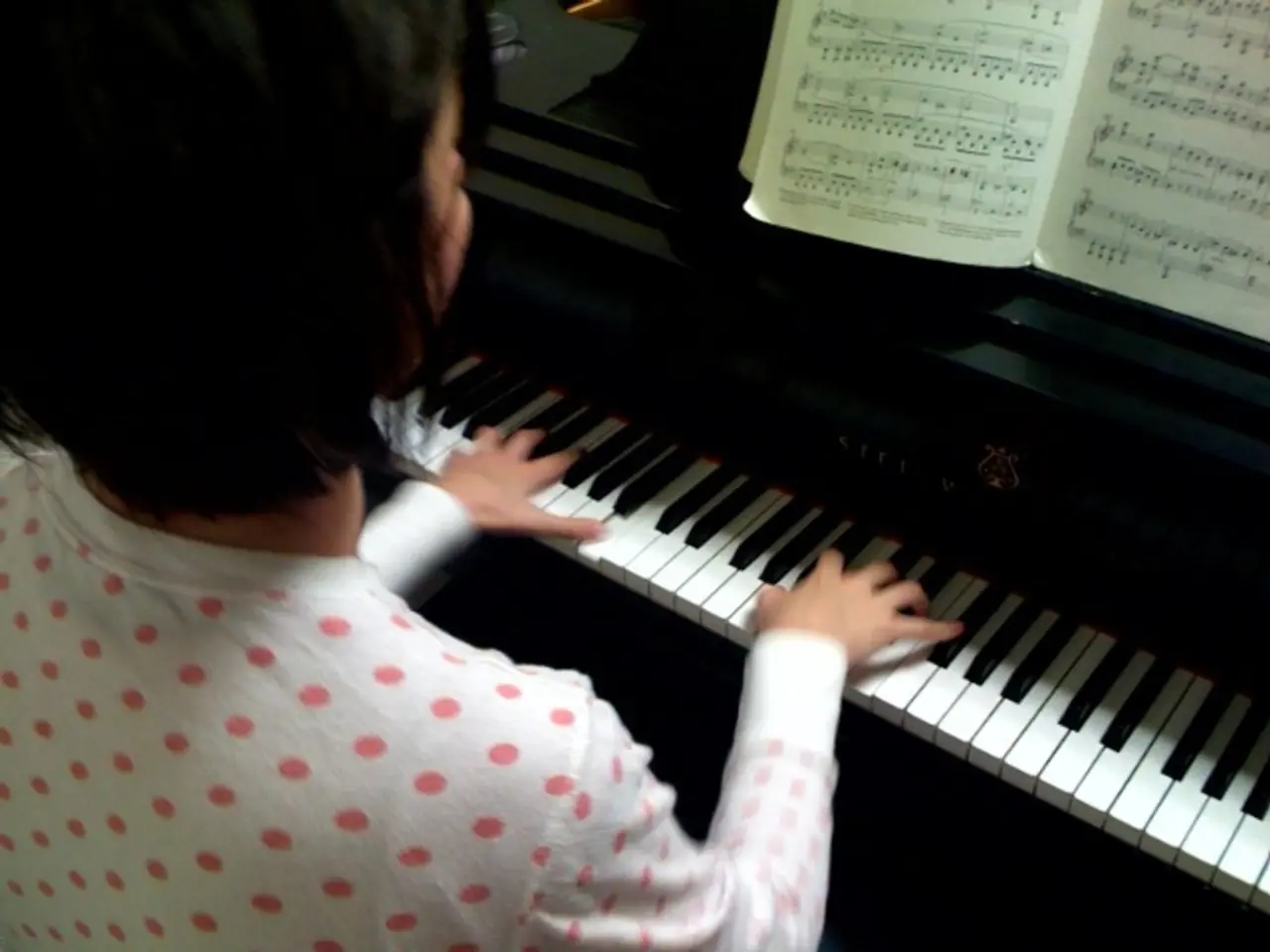Piano Instructor's Juggling Act: Blending Skill Execution with Knowledge Instruction
In the world of music education, piano teachers strive to maintain a delicate balance between their teaching responsibilities and their personal musical development. This balance is crucial to avoid what is often referred to as "academic starvation," a state of isolation or stagnation that can arise from neglecting one's own artistic pursuits.
At the heart of this balancing act lies a commitment to continuous learning and performance. For instance, Davy from Brooklyn, a piano teacher in Brooklyn, actively collaborates with contemporary musicians and integrates improvisation and composition into his lessons, nurturing not only his students' creative growth but also his own.
Embracing a playful and engaging teaching philosophy is another key strategy. By emphasizing "playing for fun" and creative exploration in lessons, teachers can avoid burnout and keep their relationship with music fresh and enjoyable.
Formal performance training and certifications are also essential components of a piano teacher's ongoing development. Ms. Isa, a renowned piano teacher, simultaneously teaches and advances her own piano performance studies and exam expertise, ensuring she remains credible and skilled in her field.
Balancing high expectations with kindness and encouragement is crucial to fostering student growth without creating a stressful environment. This approach also helps teachers maintain enthusiasm for music education.
Each artist-teacher should define their musical projects and organise their diaries effectively to balance their studying and teaching commitments. Piano teachers should continue studying to ensure the concert pianist within them survives their teaching routine.
The inspiration for piano teachers comes from classical music masterpieces, concertos, and symphonies. Overcoming the initial difficulty of not performing as well as before is crucial for teachers to rekindle their passion for music and inspire their students.
Many piano teachers started their careers with aspirations to become concert pianists. However, they soon realised they could not make a living solely through concerts and started offering tuition services. After graduation, these teachers promoted their artistic activities and played numerous free concerts.
The best way to help students understand classical music is to provide them with a digested version of what teachers do daily. By sharing their own musical journeys and experiences, teachers can help students appreciate the depth and beauty of classical music.
In conclusion, professional piano teachers sustain their musical development by actively performing, creatively engaging with music inside and outside of teaching, continuing their own studies or artistic projects, and nurturing a fun, motivating learning environment that benefits both teacher and student. This approach prevents "academic starvation" and keeps their passion for music alive.
For more insights into this topic, readers may find the article "Eating Piano Scores" interesting: https://www.ourwebsite/post/eating-piano-scores
A beginner music enthusiast, intrigued by the composition process, might stumble upon music theory to deepen their understanding of entertainment through music. Meanwhile, a seasoned composer, eager to share their passion, adopts a teaching role, striking a balance between their own musical development and the educational needs of their pupils.








